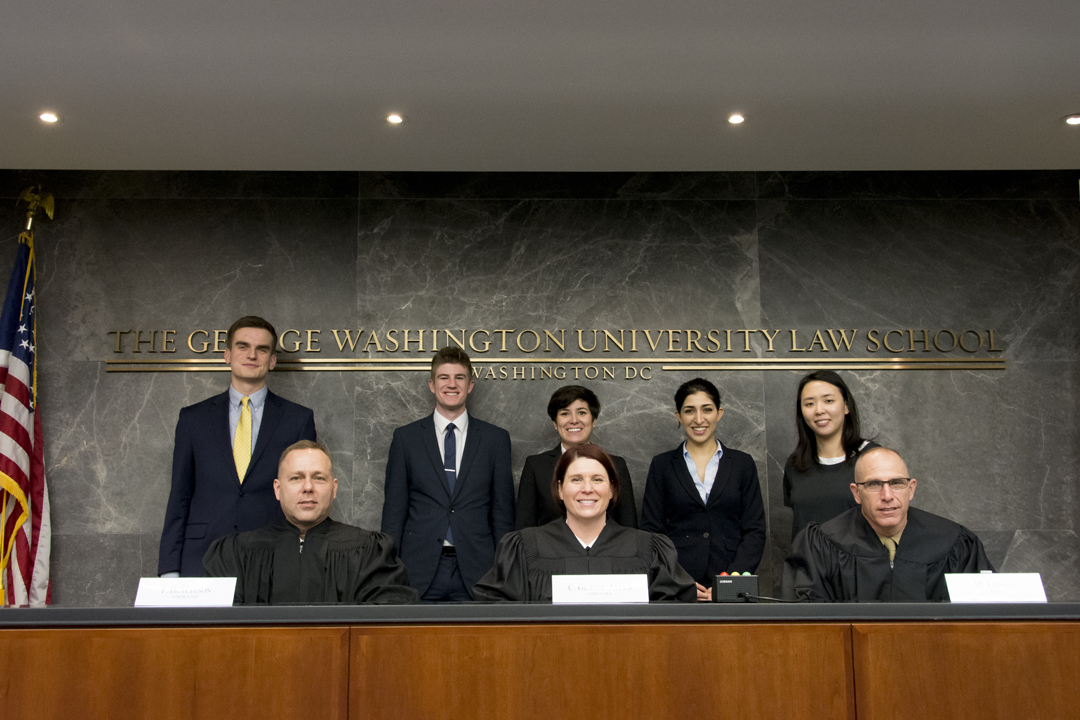The GW Law Military Law Society recently hosted the United States Navy-Marine Corps Court of Criminal Appeals for an oral argument, followed by a question and answer session with students. Military criminal appellate courts have held annual oral argument hearings at GW Law, as part of their public outreach programs, since 2009.
The court, which reviews certain courts-martial convictions of Navy-Marine Corps personnel, heard arguments in the case of United States v. Hoffmann. In 2013, a general court-martial comprised of officer and enlisted members convicted the appellant, U.S. Marine Corps Corporal Matthew Hoffmann, of multiple charges involving a child, R.W., and for possessing child pornography. The members acquitted the appellant of multiple charges involving two other children. In 2016, the Court of Appeals for the Armed Forces set aside the findings and sentence, dismissing the child pornography charges with prejudice and authorized a rehearing on the remaining charges.
At the rehearing, the appellant, contrary to his pleas, was convicted of two charges involving a child, R.W. The appellant was sentenced to 10 years of confinement, forfeiture of all pay and allowances, and a dishonorable discharge. The convening authority approved a sentence of seven years’ confinement and the remaining adjudged sentences and, except for the punitive discharge, ordered the sentences executed.
Three issues were raised on appeal. Issue I asked whether the military judge abused his discretion when he admitted propensity evidence and failed to conduct a proper Military Rule of Evidence; Issue II asked whether the military judge made a mistake when he did not extend his ruling that Colonel Woodward was disqualified for providing input on Article 34 and to include other areas of pretrial advice; and Issue III asked whether the military judge should have recused himself as he had been the reporting senior to the military justice officer during the initial investigation and was informed by NCIS on matters related to the appellant’s case.
After the arguments concluded, students in the audience had the opportunity to ask questions of the judges. A reception followed and students were able to network with the judges and other Navy-Marine Corps officers in attendance.


